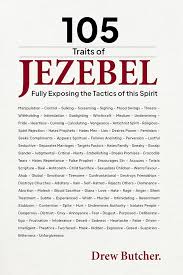
Introduction
The figure of Jezebel has captured the imagination of historians, theologians, and the general public alike for centuries. As a biblical character, she is often vilified as a symbol of wickedness and temptation. Her portrayal has sparked discussions about gender, power, and morality throughout history. This article delves into her significance, historical context, and the lasting impact she has on contemporary culture.
Who Was Jezebel?
Jezebel was a Phoenician princess, the wife of King Ahab of Israel, described in the Hebrew Bible. Her story is primarily recorded in the books of 1 Kings 16-21 and 2 Kings 9. Jezebel became known for promoting the worship of Baal, a Canaanite deity, and was responsible for the persecution of the prophets of Yahweh, the traditional God of Israel. Her life was characterized by political ambition, a clash of cultures, and a deep-seated rivalry with the prophet Elijah.
Cultural Impact
Over the centuries, Jezebel has been used as a metaphor for unruly women in various contexts. Feminist interpretations of her story view Jezebel as a figure of empowerment, highlighting the struggle against patriarchal oppression. The term “Jezebel” has been appropriated and often misused to label women who assert their independence or sexuality, reflecting ongoing societal complexities surrounding gender roles.
Modern References
Jezebel’s legacy extends beyond ancient texts, infiltrating literature, music, and popular culture. She is often depicted in films and television as a seductress or a powerful antagonist. Notably, her story has inspired numerous artistic works, including plays, novels, and songs, which explore themes of moral ambiguity and female agency. A notable modern reference includes the blog and culture site “Jezebel,” which discusses women’s issues from a feminist perspective, named in ironic homage to the historical figure.
Conclusion
The enduring image of Jezebel serves as a reminder of the complexities surrounding female archetypes in both historical and modern contexts. As societal views on gender and power continue to evolve, the figure of Jezebel remains a salient topic of discussion. Her legacy challenges us to confront our perceptions of women who defy convention, and in doing so, she represents both condemnation and empowerment, serving as an enduring symbol in discussions of gender dynamics and moral judgment. For readers, understanding Jezebel provides deeper insights into the cultural narratives that shape our modern landscape.



